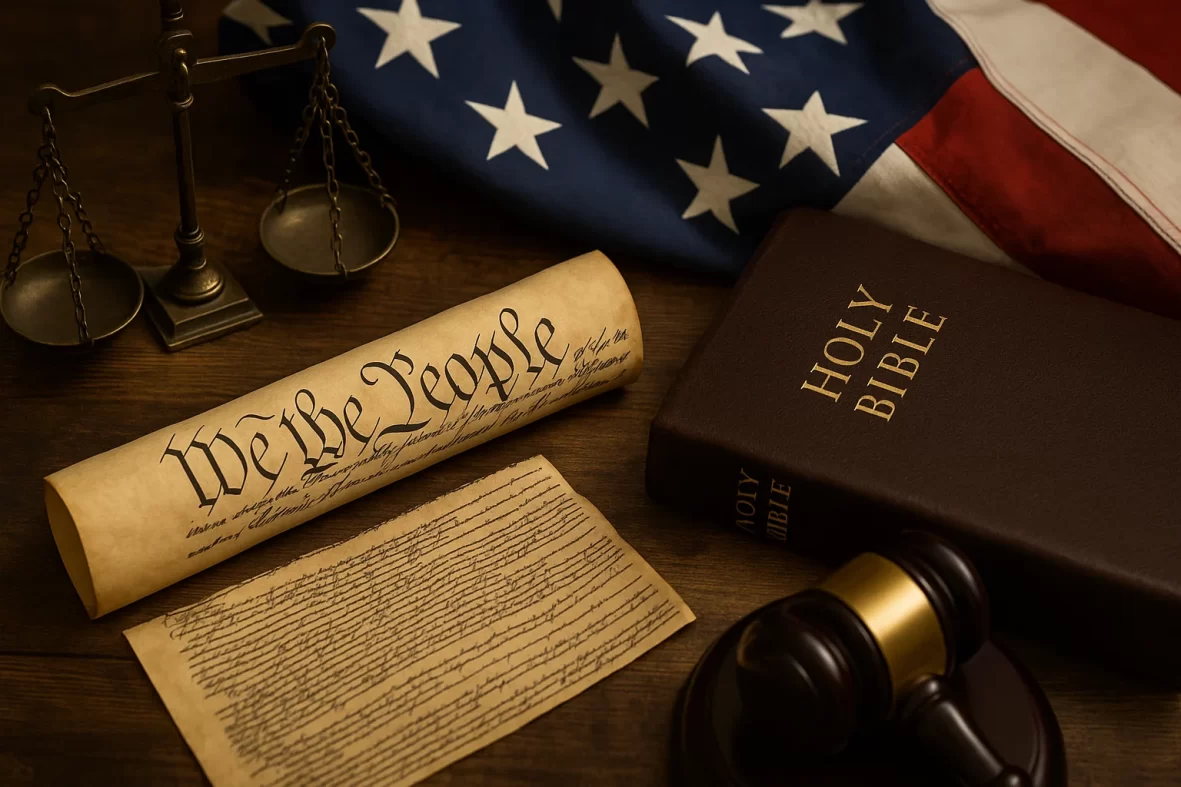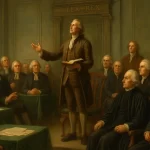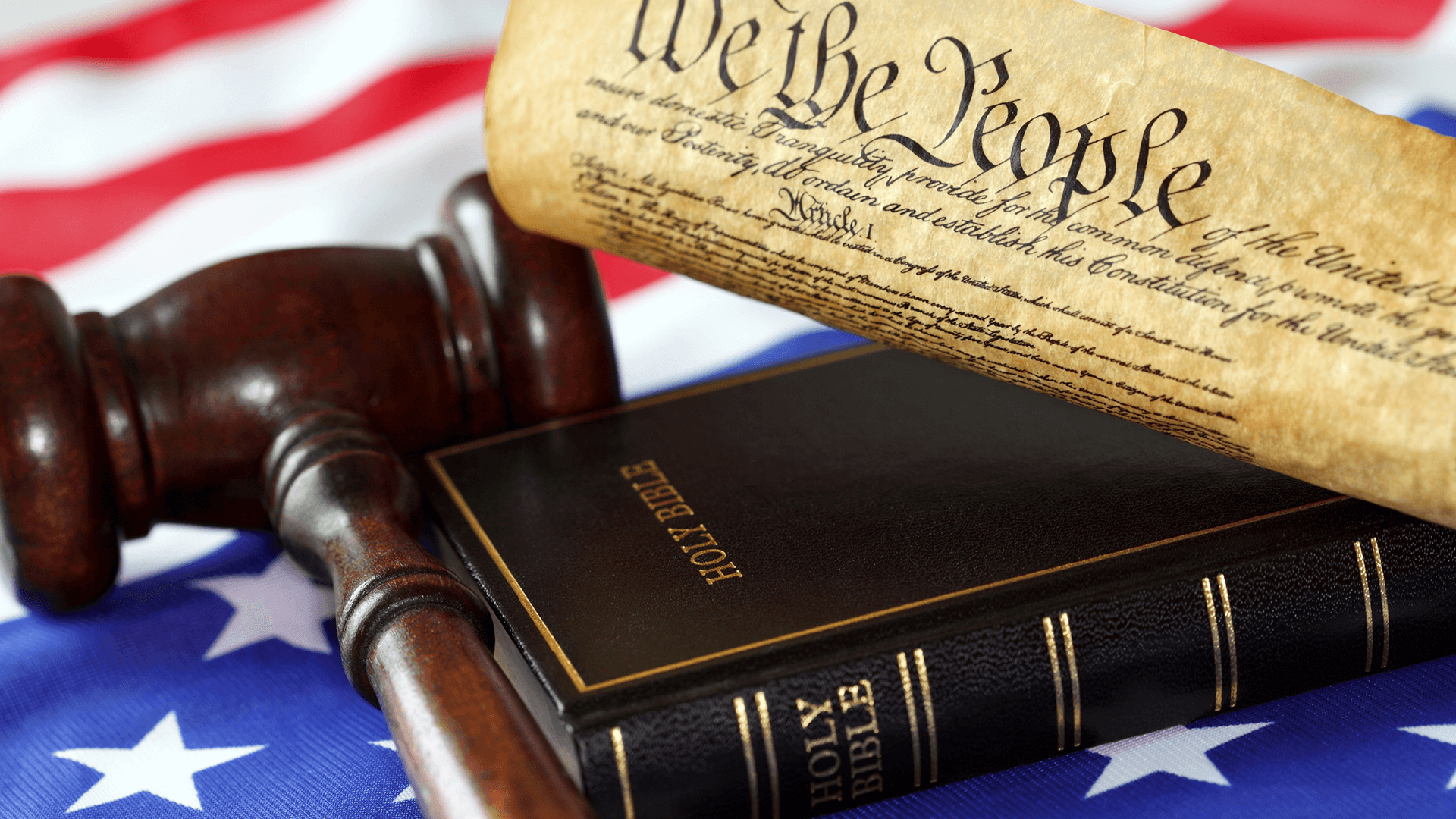What if the Constitution wasn’t born in a vacuum—but in a prayer-soaked, Scripture-laced, covenant-anchored world shaped by pastors and prophets as much as by philosophers?
This five-part series, Faith and the Founding, explores the often-overlooked spiritual DNA of the American experiment. With historical depth and theological clarity, it traces how the Bible and Reformed political thought helped birth the world’s most enduring constitutional republic.
Contrary to modern assumptions—whether secular dismissals or theocratic nostalgia—the American Founding was neither godless nor a Christian theocracy. It was something more complex, and more profound: a political order rooted in biblical anthropology, moral law, and covenantal liberty—crafted by leaders who believed in Providence and principle.
Each post blends pastoral insight with academic rigor, engaging both Christian believers and honest skeptics. Drawing from historians like Donald Lutz, Daniel Dreisbach, Mark David Hall, and Ellis Sandoz, the series invites readers to see American constitutionalism not merely as a legal invention, but as a civic fruit of biblical wisdom lived out in history.
Why This Series Matters
We live in a time of profound confusion about faith and freedom. Some claim that Christianity has no place in public life; others try to conflate the Gospel with political power. But both extremes miss the truth.
Understanding the biblical and theological roots of America’s founding isn’t about nostalgia—it’s about discipleship. If God calls His people to “seek the welfare of the city” (Jeremiah 29:7) and to “render to Caesar the things that are Caesar’s, and to God the things that are God’s” (Mark 12:17), then we must ask: What does it mean to be a faithful Christian citizen in a constitutional republic?
This series doesn’t give easy answers. Instead, it offers a guided journey through Scripture, history, and the American political imagination—inviting you to walk in the footsteps of those who believed that law, liberty, and justice are gifts entrusted to stewards, not idols to be worshiped.
The Series at a Glance
Each installment can be read independently—but together they tell a coherent story. Start anywhere, and come back often.
1. How Biblical Was the American Founding? – Fact and Fiction
Thesis: Many claim either that America was a Christian nation or that the founders were all deists. Both are incomplete. This post debunks myths on both sides by examining the real faith commitments and biblical influences in early American political culture.
Key Themes: Founding myths, deism vs. Christianity, biblical citations in political writing
Scripture Anchor: Proverbs 14:34 – “Righteousness exalts a nation…”
Takeaway: The Bible was not imposed on the nation—but neither was it absent. It was woven into the cultural fabric, informing how the Founders thought about rights, law, and liberty.
2. Pulpits and Patriotism – The Political Sermons of the Founding Era
Thesis: Before the Revolution, it wasn’t just pamphlets and protests shaping public opinion—it was pastors. This post explores how “election sermons” and “artillery sermons” helped frame liberty, justice, and resistance in biblical terms.
Key Themes: Black-robed regiment, clergy influence, sermons as political theology
Scripture Anchor: Isaiah 1:17 – “Learn to do good; seek justice, correct oppression…”
Takeaway: Far from violating separation of church and state, these sermons reflected a deep commitment to biblical civic responsibility. The pulpit was a prophetic voice—not a political party.
3. The Bible and the Constitution – Influence, Silence, and Interpretation
Thesis: Why doesn’t the Constitution mention God? This post wrestles with that silence and explores how biblical ideas like human fallenness, natural rights, and separation of powers still shaped the document’s structure and purpose.
Key Themes: Constitutional silence, religious liberty, biblical anthropology in government
Scripture Anchor: Jeremiah 17:9 – “The heart is more deceitful than all else…”
Takeaway: The Constitution was legally secular—but culturally biblical. The law didn’t quote the Bible, but it was written by men whose worldview had been shaped by it.
4. From Covenant to Constitution – Biblical Federalism and the American Mind
Thesis: The American system of layered government—local, state, and national—isn’t just a political theory. It’s rooted in biblical covenant theology and Reformation thought. This post traces that genealogy from Exodus to New England.
Key Themes: Covenant theology, Reformed influence, federalism, subsidiarity
Scripture Anchor: Exodus 19:5–6 – “If you will indeed obey My voice and keep My covenant…”
Takeaway: The Constitution didn’t emerge from Enlightenment alone. It grew in covenant soil—where liberty, community, and mutual obligation flourished under God’s sovereignty.
5. Lex Rex and the Law Above Kings – Christianity and the Rule of Law
Thesis: In a world of kings, one brave Scot declared: “The law is king.” Samuel Rutherford’s Lex, Rex helped overturn the divine right of monarchs and laid the groundwork for constitutionalism. This post explores how Scripture affirms the rule of law.
Key Themes: Higher law, Samuel Rutherford, Reformation politics, checks and balances
Scripture Anchor: Deuteronomy 17:18–20 – “That his heart may not be lifted up above his brothers…”
Takeaway: Law grounded in God’s justice—not human power—is what makes liberty possible. Christians should care deeply about the rule of law because it protects the image of God in every citizen.
Where the Series Goes from Here
This five-part series lays the groundwork for future explorations in biblical citizenship, Christian political theology, and America’s ongoing constitutional challenges.
Future Topics May Include:
- Religious Liberty in a Post-Christian Age
- Just War and Civil Disobedience
- Christian Perspectives on Federalism
- Liberty and Responsibility in a Biblical Worldview
- Moral Law, Natural Law, and the Gospel’s Public Implications
Explore how Scripture and covenant theology shaped the American founding. This series offers biblically grounded, historically rich insight into liberty, law, and the Christian foundations of constitutional government.
If this series has helped you see America’s founding through a deeper biblical lens, share it with others. These essays are written for the church, for the classroom, and for the public square—bridging the gap between theological truth and civic understanding.
To the glory of God, and for the good of our neighbors.








